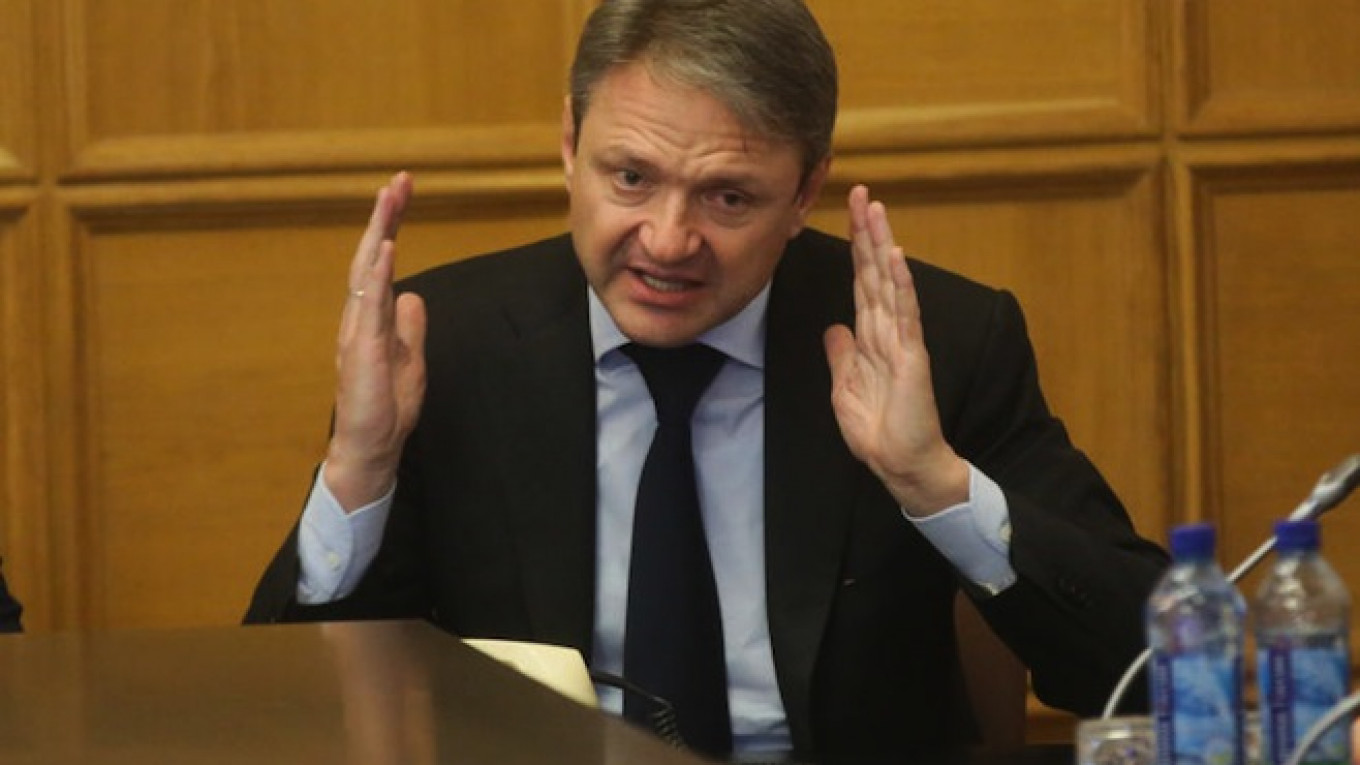Russia's Agriculture Minister Alexander Tkachyov has thrown his agency's weight behind a proposal to imprison those bringing banned foods illegally into the country, making them liable to the same penalties as those who smuggle drugs or weapons.
“Why not?” Tkachyov told state-owned Rossiya 24 television in a broadcast Sunday afternoon. “Everywhere in the world, contraband [smugglers] are treated harshly, so if you have broken the rules, you will banned from entering the country for decades.”
“How could it be otherwise? We are protecting our people,” he said.
So far, food smugglers – those who violate Russia's embargo on Western food imports, which Moscow implemented in response to sanctions imposed for its role in the Ukraine crisis – only face administrative charges, such as fines, according to news reports.
But Russia's Federal Customs Service published a draft bill last week suggesting that banned foreign foods be listed as “strategically important” — a label so far reserved for radioactive materials, poison, armaments and explosives. The re-classification would allow authorities to bring criminal charges, with prison terms of up to seven years, against individuals and companies involved in smuggling.
Tkachyov was the minister who initially proposed destroying banned food imports seized at the border — a controversial measure that went into effect Aug. 6.
The government has remained determined in its drive to destroy banned food imports since then, ignoring calls to hand out the food to Russians impoverished by the economic crisis.
Hundreds of tons of fruit, cheese, meat and other products have been steamrolled, covered in bleach or burnt at the Russian border.
A Message from The Moscow Times:
Dear readers,
We are facing unprecedented challenges. Russia's Prosecutor General's Office has designated The Moscow Times as an "undesirable" organization, criminalizing our work and putting our staff at risk of prosecution. This follows our earlier unjust labeling as a "foreign agent."
These actions are direct attempts to silence independent journalism in Russia. The authorities claim our work "discredits the decisions of the Russian leadership." We see things differently: we strive to provide accurate, unbiased reporting on Russia.
We, the journalists of The Moscow Times, refuse to be silenced. But to continue our work, we need your help.
Your support, no matter how small, makes a world of difference. If you can, please support us monthly starting from just $2. It's quick to set up, and every contribution makes a significant impact.
By supporting The Moscow Times, you're defending open, independent journalism in the face of repression. Thank you for standing with us.
Remind me later.






